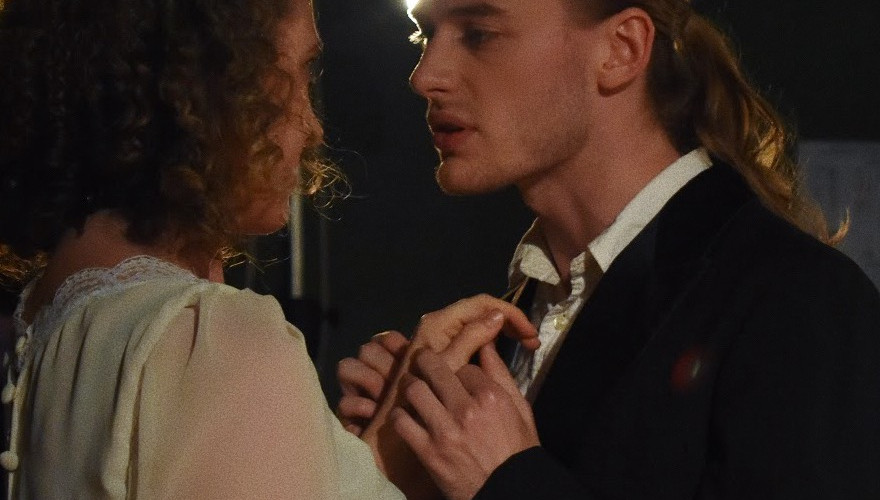Review: Venus in Fur at 107
- Apr 12, 2019
- 3 min read
By Guy Webster
There’s a crack of lightning, the lights flicker, and a phone rings. Our male lead, Thomas, has been sitting at his desk since the audience started taking their seats. It’s the only time he’ll be alone on stage for the entire play and we’re there with him, denying him any complete solitude, and with it, any power. These are the stakes of ‘Venus in Fur’: a gothic descent down a rabbit hole lined with BDSM, Greek mythology, and an exacting representation of the intricacies of power.
Thomas (played by Zach Selmes) has been hosting auditions for a play he’s written, or rather adapted from a 19th Century novel. Before long, he’s joined by Vanda (played by Caitlin Williams), an actress who shares the name of the play’s lead character. She’s late and drenched from the rain (lightning still cracks outside), and she wants to be considered for the role. What follows is a battle of wills that comes across more like a well-choreographed dance at the hands of director, Emma Burns.
The power balance between both characters is the driving force of the play, and Burns uses a mostly measured hand to tip this balance and analyse its origins. It’s clear that Burns respects the source text, she lets it shine without feeling the need to overpower it with direction. Likewise, her cast revel in the play’s tense moments and shine brightest during it’s bountiful wit. That being said, there are times when the play falters and seems to stagnate. Some repetitive staging pulled the performance into a lull at times, and the distant echo of a soundscape left the space noticeably vacant (if but for the occasional crack of thunder). Despite the limitations of the space, it would’ve been useful to see the performance broken up by a change in sound or lighting more often. Even the final denouement became suddenly anti-climactic when I noticed that sound and lighting had remained unchanged despite increasing tension and higher stakes. The 107 was a particularly interesting space to hold the play; it heightened key hits of metatheatricality and dragged you into the fictional audition space – but it could’ve been used more effectively.
However, it speaks to the skill of both Selmes and Williams that these seemingly stagnant moments did not translate into overzealous performances designed to fill the stage and activate the audience by force. Both actors are simply hilarious, and the tension they impart into the space between them sparks spectacularly at key moments. Selmes offers a sustained physicality that anchors the play, and Williams was able to characterise her voice with such nuance (her German accent was a particular comedic highlight), even if her physicality was a bit lacking at times.
Each actor also moved seamlessly between the fictional audition space and the equally fictional world of the play within the play. This movement heightened the surreal tones that build in the piece and served as the backdrop for Vanda to assume greater influence over Thomas. Slowly but surely, Vanda writes herself into the play that Thomas has created, and then proceeds to directs him into – and then out of – it. A battle of wills becomes a dance that Vanda choreographs, performs; and, by the end, destroys.
I enjoyed every minute.
Images Supplied
All opinions and thoughts expressed within reviews on Theatre Travels are those of the writer and not of the company at large.
































































